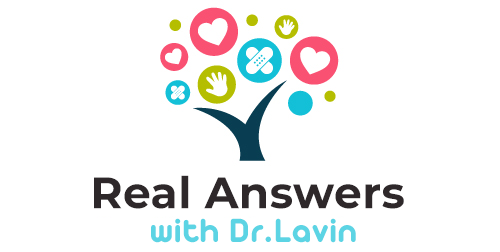So many, many recommendations keep streaming around us to enhance our health and prolong our life, from stress reduction to various supplements, but one that continues to prove its value is exercise.
But until recently no one really knew why.
The entire puzzle is not yet solved, but a very, very big clue is coming into focus- we are actually evolved to move.
The Benefits of Exercise
Moving one’s body grants an extraordinary level of increased and improved function to a rather astounding range of our organs. The closer we look, the more types of cells appear to work better if we move around.
Rates of diabetes, heart disease, even cancer reduce with regular motion. Cognitive function improves. Pancreas, heart, brain, gut, lungs, nearly every organ, and nearly every type of cell across all organs, works better if there is regular movement over the days and weeks.
What Exercise Helps
Another curious property of exercise helping is that it does not take some terribly strenuous level of movement to get the benefits. The most beneficial form of exercise, that is the type that delivers the most improved function across our organs, is the humble activity of walking. Finding ways to walk over 10,000 steps a day can deliver all the benefit you need. That could come in the form of walking, at least part of the way, to work or school. Using stairs rather than an elevator. Standing rather than sitting at work. The point is that you require no equipment, nor any memberships, to get the exercise that can deliver the benefits.
Postal workers in Glasgow, Scotland, who stepped over 15,000 steps a day, or walked 7 hours a day ended up with excellent heart health and no diabetes over time, all without equipment, sports, or gyms.
What Exercise Does not Do
The main failing of exercise is its inability to change your weight. Only changes in what you eat can do that, but exercise can enhance the impact of eating better and eating less, and help maintain the new weight.
Why does exercise do so much good, but not so much good to our weight?
Recent Insights on the Way Exercise Helps Us
A recent report in the January 2019 issue of Scientific American by Dr. Herman Pontzer at Duke University provides a whole new look at exercise. His idea is that as bodies evolve to fulfill various functions, that the actual functions of cells and organs change, and these changes can affect the impact of exercise.
Perhaps the most powerful way to describe his findings is to look at the role of exercise in the life of a chimpanzee and in a human. It turns out the chimpanzee eats more fruit than meat, in comparison to us. So they can afford to find the fruit tree, rest, chew, nap. Their brains, muscles, and all other organs do just fine getting them to the fruit tree and then resting.
As we evolved from chimpanzee through the stages of australopithecines, the various early hominids like Homo erectus, to our current form as Homo sapiens, we began to add hunting to gathering. The addition of meat greatly enhanced our calories, allowing for more energy to manage the function of our growing brains, which in turn were necessary to outfox the animals we now hunted.
The article actually traces the fossil record of when our ancestors began to eat meat, when our brains began to grow, and when our daily routine shifted from lounging around to walking all day to hunt.
It turns out all these changes and more happened all at the same time, and came together into our current form around 320,000 years ago.
Now, when we look at the traditional hunter-gatherer Homo sapiens now living, we find they walk about 5-7 hours a day. It is also very likely that we once outran, by the clock, game such as deer, trotting after them for 72 hour straight, a task only humans can do, wearing out the deer over long stretches of time.
Further research appears to prove that as we evolved to hunt, our cells evolved to be at their healthiest if we sustained motion, namely walking. That effort is now known to release many, many dozens of chemical signals that enhance health.
What that Means for Us Today
So the observation is not that one needs to do strenuous exercise to reap the benefits of exercise. That will help, but just walking or biking or swimming leisurely is plenty fine.
It also means that walking, the essential human exercise, is not something that enhances modern life, it is an essential motion our bodies evolved to do and the need to do over the last 6-7 million years.
Sadly, our sudden reversion to chimpanzee lifestyle, where food is abundant without any exercise, has happened to quickly for our walking bodies to change our cells.
BOTTOM LINES
- Exercise is one one of the most reliable health-advice activities to do. The evidence is overwhelming that it helps reduce the incidence of a wide range of maladies. That is, it reduces the incidence, does not eliminate them.
- Exercise is not very effective in reducing weight.
- Both of these points are explained by recent observations that humanity emerged from apes in a sequence that included expanding our source of food to hunting, requiring a body newly evolved to walk for many hours a day. This evolution yielded a body containing organs and cells that work well, remain healthier, if we do remain in motion during the day.
- These facts also explain why achieving over 10,000 steps a day is plenty to reap many of the benefits of exercise. Walking is the very best exercise, it is what we are designed to do.
So, here is to more walking in 2019, and to your health.
A Happy and Healthy New Year,
Dr. Arthur Lavin









No comments yet.